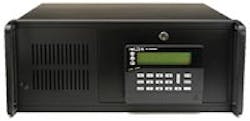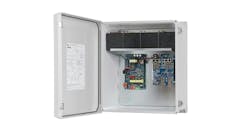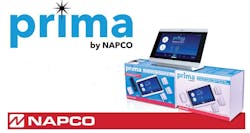The analogy between physical security (locks) and electronic security (controls) has always been an apparent one. The convergence of locks, electronics and networks strengthens the analogy to where it is obvious that a single source, the locksmith, should be the most qualified and most convenient means of delivering these services.
The demand for electronic security of all kinds has never been greater. New technologies make new products possible. The demographics of our nation bring more buyers into the market. Building and fire codes mandate increased levels of safety and security, and our society and criminal justice system encourage the use of electronic security by enforcing foreseeable liability complaints in our courts.
In other words, if a crime or accident occurs, the attorneys investigate whether some type of system was required by code to be present in a premises, if use of certain systems is considered common practice in that situation, or if similar accidents or crimes have occurred which might have made the event foreseeable.
If the answer to any of the above is yes or maybe, then you’ve got a lawsuit on your hands.
This means that the market for such equipment is vibrant, and if you have a retail presence in a community or make house calls, you’re going to be presented with opportunities to suggest and offer these systems on a daily basis.
Or you could just wait for the clients to call you. This how many locksmiths operate. They do little marketing, or they do not emphasize that they do anything but cut keys, install deadbolts or open safes. Then they feel left out when the jobs pass them by.
The public is trained to have a certain set of expectations. Many people figure if you do not advertise it, you don’t do it. There is no shortage of alarm dealers out there who essentially make themselves a nuisance telling people they do alarms and that alarms are the most important thing in the world to have.
To many locksmiths, this type of marketing technique is vulgar and degrading. Besides, it is time consuming and they don’t know how to do it anyway.
Then there are all the legal issues; the technology and the financing.
All of this is true. But if you have any inclination to grow your business, or perhaps get involved in activities which could actually make the difference between remaining in business or having to close up your shop, then stay tuned.
The first issue to address is to adjust your attitude. To the traditional locksmith, the relationship with the customer begins and ends at the Point Of Sale. When you hand them the key you just cut for them, that’s about the end of it, until they need another key someday.
Institutional and some commercial locksmithing is more attuned to repeat customers, and ‘accounts.’ They call you regularly to perform routine and emergency service and installs.
This type of business is what electronic security is all about: maintaining relationships with the account and earning the recurring revenues from monitoring, servicing and the programming.
Our society has simply outgrown the mechanical lock as their sole means of security, and just about any technology you can name is subject to some sort of failure. If a client loses a key, the locksmith replaces it. If a piece of alarm equipment breaks, then it also needs to be replaced or repaired.
Licensing & Legal Issues
Every state has its own regulations regarding licensing for alarm installers. It is up to the locksmith to find out what they are. National and State Trade associations can get you on the right track.
Licensing usually involves a training of your technicians, background checks for the technicians, registering your business, and verifying that you carry adequate insurance. Like ammunition and guns, you do not need a license to buy alarm equipment, but you will need a license to install it. And without training, you are very likely to shoot yourself in the foot trying to install it without some initial training.
Once the alarm is installed, you will need to monitor the system, so that if the premises is subject to a break-in or fire, or if the equipment fails in some regard, the police, or EMS or client, or you will know about it.
You will develop a relationship with a contract (third party) monitoring service. Your systems will be programmed to send them the signals from your panels, and they’ll be programmed to provide the exact reactions to the signals.
Besides the usual burglar and fire alarm monitoring, new products and services are offered which involve third party monitoring. It’s a thriving industry and a good central station is critical for the success of your alarm activities.
New services such as medical alerts, building systems monitoring, remote video surveillance and off-site access control are all very important elements of the electronic security industry.
For those new to the alarm industry and even for those who’ve been in the game a while, authorized Dealer Programs are attractive because of the benefits and services they can provide.
These programs have evolved from the original account buy-out, where a dealer wanted to retire or get out of the business, and someone, frequently his central station, would offer him cash for the accounts. Sometimes a dealer didn’t want to get out of the business, but just needed some cash, so the central station would acquire some of the accounts, but the dealer still did the billing and the service.
There are many variations on these deals, and there may be a program out there just right for you. If you ever look in the yellow pages at anything else but “LOCKSMITHS,” you will see several major players under the “ALARMS” category, and many of the dealers are locals who have franchises, or certifications, or partnerships with National Brands, and they enjoy the benefits and advantages of these associations.
There are primarily three types of Authorized Dealer programs, but each one has its own unique characteristics.
Central Station Based: The relationship hinges from the monitoring relationship between the dealer and the central. Dealer programs offered by monitoring services companies give a variety of benefits such as leads and sales training. Mainly, however, they are about buying monitoring agreements to provide the seller with capital to further grow their businesses. Some programs will buy all your contracts, while others encourage that the dealer retain ownership of a portion of their contracts or give options to buy them back later.
An important element of the process is the multiple offered by the buyer for the contract. The average monitoring contract is $29.95 per month, and the typical multiple being offered is 30. This means the seller get $900 for each contract.
Equipment Manufacturer Based: The relationship hinges on the dealer’s expertise and commitment to a particular brand of equipment. These programs offer dealers incentives to sell product. In return, the dealer receives sales training, help with bid preparation, sales leads, sales and marketing materials and special authorized dealer discounts. Additional rewards are granted the better the dealer’s performance.
Installation Company Based: The relationship hinges on the dealer’s use of the national company’s marketing, monitoring and product resources offer sales training, management and operations support and assistance in lead generation.
RESOURCES
National Burglar & Fire Alarm Association is the nation’s oldest and largest organization dedicated to representing, promoting, and supporting the electronic life safety, security and systems industry. Member companies specialize in a wide spectrum of services to commercial and residential consumers, including security and fire alarms, video surveillance, access control and monitoring. Web site: www.alarm.org.
The Central Station Alarm Association Organization represents providers, users, bureaus, and other agencies of UL-Listed and/or FMRC-Approved central station protection services. Web site: www.csaaul.org
The Security Industry Association (SIA) is a full-service, international trade association promoting growth, expansion, and professionalism within the security industry by providing education, research, technical standards, representation, and defense of member’s interests. SIA members are involved in several market segments such as, CCTV, access control, biometrics, computer security, fire/burglar alarms and home automation. Web site: www.siaonline.org.
ASIS International, with more than 34,000 members, is the largest international organization for professionals responsible for security, including managers and directors of security. Web site: www.asisonline.org.
Established in 1896, NFPA serves as the world’s leading advocate of fire prevention and is an authoritative source on public safety. Its mission is to reduce the worldwide burden of fire and other hazards on the quality of life by providing and advocating consensus codes and standards, research, training, and education. Web site: www.nfpa.org.
NAPCO Addresses Growing VoIP Trend
NAPCO Security Systems, Inc announces the availability of its new NetLink UL Listed TCP/IP Central Station Receiver. This is the latest product in NAPCO’s growing family of NetLink alarm reporting products, and addresses the increasing need for UL central stations to adopt new receiver technologies to combat the widespread adoption of Voice-over Internet Protocol (VoIP) in place of traditional “telco” services.
Napco’s NetLink™ NL-RCV-RMPCUL is an advanced, rack-mounted receiver enabling cost-effective secure internet alarm reporting. While in full compliance with UL Central Station applications, requiring primary and mirrored backup receivers, two (2) NetLink UL Receivers can be installed at the same cost as a single traditional receiver.
Both NetLink TCP/IP UL Receivers interface with the conventional CS automation system and are simply connected to each other with a network crossover cable, where the mirrored receiver serves as a Hot Backup, duplicate receiver. NetLink UL TCP/IP Receivers feature two modes of operation, Automatic Mode, where alarm signals are sent normally to the automation system for processing, or Manual Mode, used when direct operator interaction is desired, accomplished thru an easy, menu-driven keypad-style alphanumeric interface on the face of the receiver. NL-RCV-RMPCUL is listed for UL864 (Control Units for Fire Protective Signaling Systems) and UL1610 (Central Station Burglar Alarm Units).
And, any brand of alarm system installation, old or new, faced with the absence of traditional “telco / land lines”, can be simply, economically equipped with a Napco NetLink Module. It will then communicate to the central station‘s NetLink TCP/IP Receiver(s), using secure, NIST/AES 128bit encryption. There, the panel module source is immediately received, authenticated as a valid account, and its alarm reports decoded and sent to awaiting CS operators for disposition. (Alarm Panels can report online with either NetLink Internet Module: Original NetLink NL-MOD or more economical, new NetLink NET-COMM.)
The Napco Security Group is a diversified manufacturer of security products, encompassing burglar and fire alarms, access control systems, video and electronic digital and proximity locks, as well as panic exit hardware. Products are sold and installed by security dealers, locksmiths and systems integrators worldwide. Visit www.napcosecurity.com for more information.
Tim O'Leary
Tim O'Leary is a security consultant, trainer and technician who has also been writing articles on all areas of locksmithing & physical security for many years.






